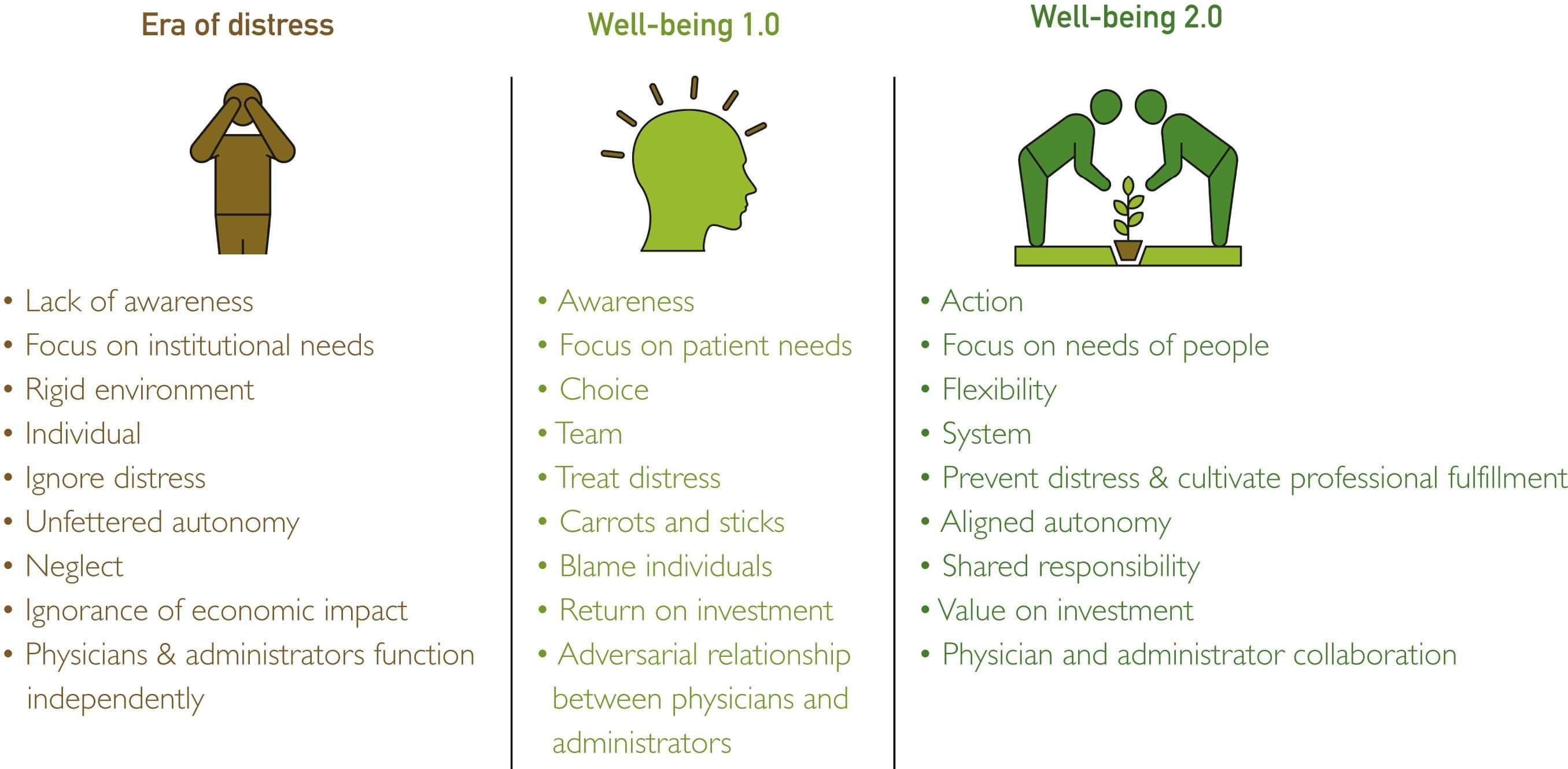Why Social Connections are Important for Doctors: They Help Prevent Professional Burnout
Mayo Clinic found that giving physicians a way to gather in small groups for semistructured, private discussions in restaurants, coffee shops or reserved rooms results in measurably lower burnout and social isolation, and higher well-being and job satisfaction.
According to Mayo Clinic research, "Commensality (sharing a meal) with colleagues with an intentional design can be used to encourage healthcare professionals to explore the virtues and challenges of their lives in the healing professions and support one another. This approach is evidence-based and will promote engagement and reduce burnout."
Mayo Clinic Strategies to Reduce Burnout, page 230

Well-being 2.0: A call to action
Mayo Clinic's article "Well-being 2.0" represents a paradigm shift in healthcare—a recognition that the mental and emotional health of healthcare providers is as crucial as their clinical skills. Rooted in the principles of awareness and action, Well-being 2.0 emphasizes the importance of supporting physicians and healthcare workers in navigating the challenges of their profession.

Mayo Clinic agrees: Connection Matters.
In the demanding, high-stakes world of healthcare, physicians often face unique stresses and pressures. They witness suffering, make life-altering decisions, and shoulder immense responsibility daily. Amid these challenges, the need for connection becomes paramount.
Leadership teams recognize that fostering a sense of connection among doctors is essential for several reasons:
1. Support and Solidarity: Doctors need a space where they can share their unique struggles, debrief challenging cases, and receive support from peers who understand their experiences.
2. Reducing Burnout: By creating a culture of openness and support, leadership teams can help mitigate burnout—a pervasive issue in healthcare. When physicians feel connected and supported, they are better equipped to cope with stress and adversity.
3. Enhancing Well-being: Connection is fundamental to well-being. When doctors feel connected to their colleagues, they experience greater job satisfaction, engagement, and overall happiness. This, in turn, can have a positive impact on patient care outcomes.
4. Building Resilience: Connection fosters resilience—the ability to bounce back from adversity. By fostering connections among physicians, leadership teams empower their medical staff to navigate challenges with greater resilience and fortitude.
In summary, connection matters because it cultivates a supportive environment where doctors feel valued, understood, and empowered to thrive. As healthcare organizations strive to prioritize physician well-being and combat burnout, fostering connection among medical teams emerges as a crucial strategy in promoting a culture of resilience and holistic well-being.


